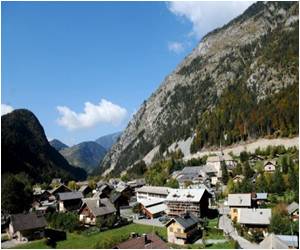
To predict future global forest trends, the scientists used several centuries of global land use data from the United Nations Food and Agriculture Organization and other sources.
They incorporated this data into their mathematical model designed to capture how land use transitions, including deforestation and reforestation, are driven by three key factors: agricultural yield, per capita food consumption, and world population change over time.
Based on historic trends that show growing food consumption outpacing rising agricultural yields, global forest cover is predicted to decline about 10 percent further, stabilizing at roughly 22 percent forest cover over the next century.
Unless new technological advances increase yields, or strategies to decrease food consumption are introduced, a switch to global reforestation remains unlikely.
Under an alternative scenario where food production and consumption stabilize, reforestation could increase global forest cover to about 35 percent if it occurs within the next 70 years.
Advertisement
Source-ANI








